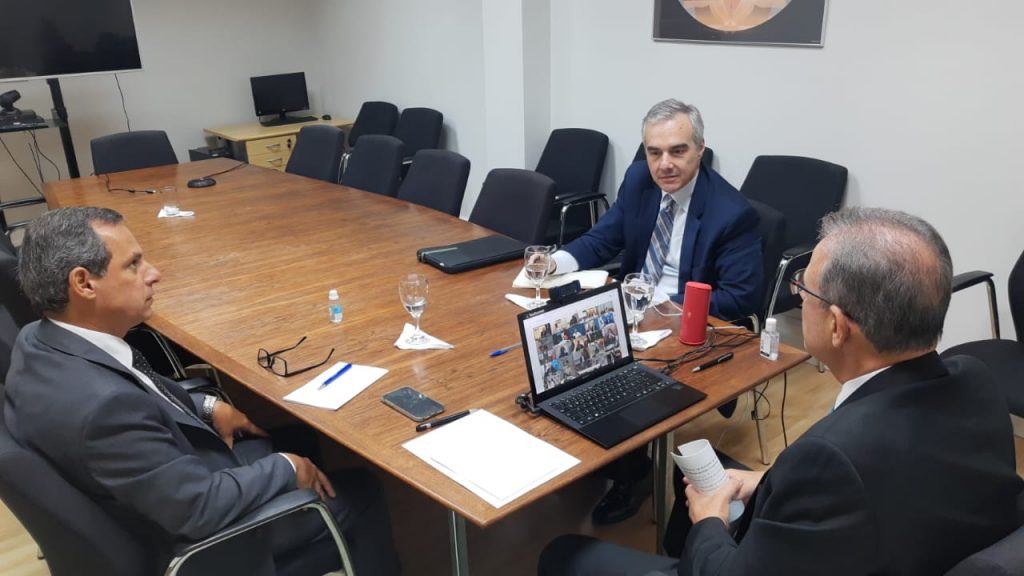São Paulo – The Organization of Petroleum Exporting Countries (OPEC), Russia and other producers reached an agreement last Sunday (12) on a 10% cut in global oil supply in a bid to improve prices amid the coronavirus pandemic. The oil prices have significantly dropped since early March due to the decreased demand because of the pandemic and an increased production announced by Saudi Arabia and other producers.
OPEC members, though, will reduce production by 9.7 million barrels per day in May and June. The agreement was signed in a videoconference and provides that cuts will continue for two years until April 2022. The decision was taken following an online meeting between the ministers of energy of G20 last Friday (10), the forum of world’s largest economies currently chaired by Saudi Arabia. Improved prices of the commodity could help boost the economies of the producing countries, such as the Gulf ones.
The minister of Mines and Energy of Brazil, Bento Albuquerque, participated in the G20 meeting (pictured above) and said that, for legal reasons, Brazil’s government has no influence over the oil market, it just makes public policies in the sector. He reported that Petrobras has reduced its output by 200,000 bpd, which accounts for 20% of Brazil oil exports. Albuquerque pointed out that Brazil became an oil net exporter in 2019 and is among the world’s top ten producers.
The minister added that Brazil understand that the global market should find an oil price trough existing mechanisms. “Brazil reiterates its willingness to always discuss energy topics both under G20 and the International Energy Agency and bilaterally,” he told his colleagues.
In a press conference after the online meeting, the G20 energy ministers said that the COVID-19 has destabilized the world oil and gas markets and undermined the energy security of many nations. They believe that guaranteeing the energy market stability and an accessible energy is now key. The group pledged to take the necessary steps to guarantee a balance between the interests of producers and consumers as well as the energy security and flow.
Translated by Guilherme Miranda




